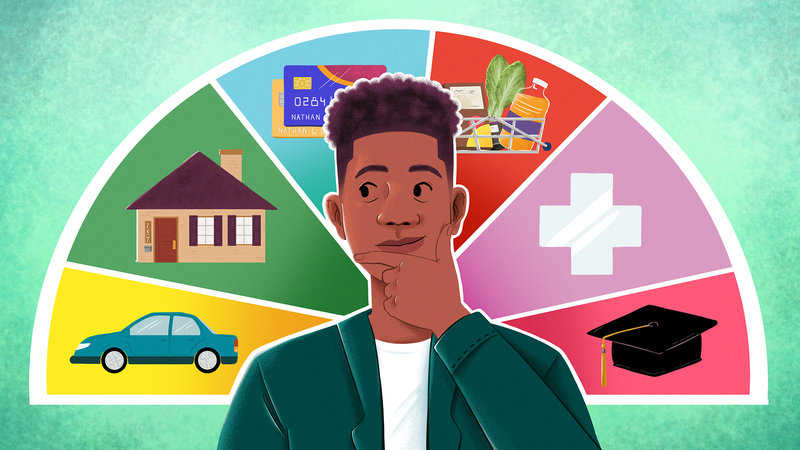
Be The Master Of Your Budget
Article Published by: npr.org
Budgeting gets a bad reputation.
“The first image that comes to most people’s mind is dieting or imprisonment,” says Jesse Mecham, founder of the budgeting software You Need A Budget. But that, Mecham says, is an inaccurate picture. “Budgeting is not about being handcuffed. It’s really about being liberated.”
Creating a budget can be empowering and forge paths for new opportunities. These six budgeting tips will help you track your spending and make more informed decisions about your money — and your life.
1. Don’t budget just because you think you should.
If you’re budgeting because you think that’s what responsible grown-ups do, that’s not super concrete or motivational. Instead, set a specific goal that has meaning to you, like paying off credit card debt, student loans or saving for a vacation, says Kristin Wong, author of Get Money: Live the Life You Want, Not Just the Life You Can Afford. “Now you have a reason to say no to that $50 dinner because you have something to say yes to now,” Wong says.
2. Harness your freakout.
Big life changes — a move, a job loss, becoming a parent — can bring big stress. Leverage that anxiety, channeling it into motivation to adjust your budget. “Those moments, where you have the willpower or you have the energy, you have this motivation,” Mecham says. “That motivation is fleeting.”
So take advantage of budgeting momentum while it lasts. If you mess up or overspend later on, don’t quit. Mecham stresses the importance of being flexible: “You just make adjustments, like a coach [at] a basketball game making halftime adjustments. You just adjust to how the team plays.”
3. Follow the 50-30-20 method.
When you get started, try the guidelines that Sen. Elizabeth Warren helped develop as a Harvard professor. The largest portion, 50 percent, of take-home income should go towards basic living expenses — housing, groceries, etc. Then 30 percent for discretionary expenses, like entertainment and clothes; and 20 percent for savings and paying down debt.
4. Use the power of scarcity.
With credit cards and overdraft protections, “We’ve gotten really used to the idea that we never really run out of money,” Mecham says. But having a sense of scarcity can be helpful when you’re trying to save. Remember back when you were a kid and all you had was that $5 from babysitting or mowing lawns? You were probably pretty careful about how you spent that money because once you did, it was gone. Try designating a certain amount of money for each budgeting category every month, and when you run out, it’s out.
5. A roommate is worth a thousand coffees.
It’s unlikely you’ll reach your budget goal just by cutting back on coffees. Housing, food and transportation are usually the biggest expenses. “If you get a roommate or move to a cheaper place, those major decisions are going to save you so much more money,” says Wong. “They’re harder decisions to make, obviously. But they give you more bang for your buck.”
6. Try different budgeting techniques to see what works for you.
Whether it’s a simple spreadsheet or a budgeting app with lots of categories, use the system that works for you. Mecham says the main thing is not to wait until a “normal month” to get started — that will never come. So just start doing it, like right now.
Here’s one easy worksheet to get you started.
About Scott Livengood
Scott Livengood is the owner and CEO of Dewey’s Bakery, Inc., a commercial wholesale bakery with a respected national brand of ultra premium cookies and crackers.
Previously, Scott worked at Krispy Kreme Doughnuts for 27 years, starting as a trainee in 1977. He was appointed President of the company in 1992, then CEO and Chairman of the Board.
Scott has served on numerous boards including the Carter Center, the Calloway School of Business and the Babcock School of Management, Habitat for Humanity of Forsyth County, and the Winston-Salem Chamber of Commerce.
He started a new business, StoryWork International, in 2016 with Richard Stone. The signature achievement to date is LivingStories, a story-based program for improved patient experiences and outcomes in partnership with Novant Health.




